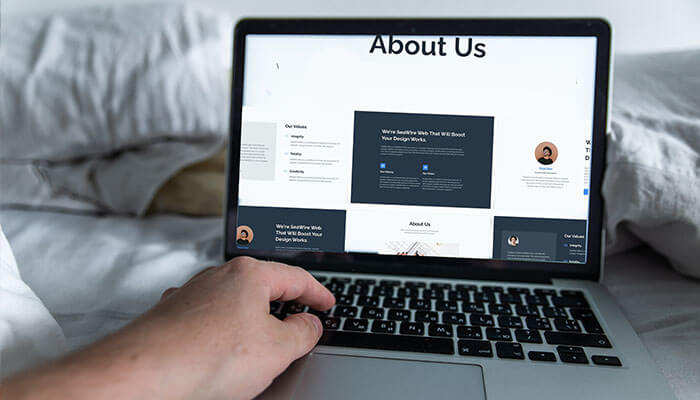Numerous studies show that consumers don’t trust brands to tell them the truth. But they do trust their friends, family, product reviews, and their favorite influencers. In fact, some trust influencers about as much as human beings in their actual lives. Read on to learn how you can make your B2B business more relatable.
People don’t want to hear from advertisements and dry, suit-wearing corporate spokespeople. They want real voices from real people to give them solid, objective advice about what they need.
But that element of human connection isn’t only important in the B2B business. Brands also need to find more genuine ways to connect with other brands.
1. Create Your Own In-House Podcasts
We all know the advantages of podcasting in marketing to consumers. Millions of Americans listen to podcasts. They tune in while they’re riding to the office or chopping their veggies for dinner. Consumers fall into the habit of listening to each episode and come to love and trust their favorite podcast voices.
But however important an airtight podcast marketing strategy is in marketing to the average consumer, it’s even more crucial in B2B business. When you’re trying to reach busy leaders and decision-makers, you need to capture their attention while they’re multi-tasking. Getting them to browse your website or read your marketing emails is tricky when they have so much to do.
But a compelling podcast can continue to reach executives while they’re at the gym, in the car, or ticking off dull admin tasks. It can nab their interest — and their B2B business — at key times you might not otherwise have their focus. If your content is good, they’ll come to rely on you for intel and recommend your services to others.
With a podcast, you’re not an advertisement — you’re a trusted expert on what your customers need to know. Plus, podcast content can also easily be captured and recycled into other formats to maximize your reach and topical authority. It’s easy to get auto-generated transcripts and turn them into blog content or use them to script YouTube videos.
2. Craft a Powerful “About Us” Page
A killer About Us page can be a highly effective way of making your prospects feel connected to your brand. It’s a chance to tell your brand’s origin story in a way that can resonate deeply with readers. It’ll make them curious about you and more inclined to investigate further.
Your About Us page should talk about how your company started, how it has evolved, and what it has to offer. Your mission, vision, and value proposition without verging into corporate-speak or sales-y territory.
Nor is this a place for an overly technical primer on what your company does or sells. You want to use the page to help customers see your team as people with whom they have plenty in common. No matter the size of the company, your About Us page can likely benefit from a little bit of a “mom and pop” or DIY feel.
The Good About Us page should have clear, joyful-looking photos and in-depth bios of key members of your team. A quirky fact or unexpected hobby in each bio is a great way to make your team more relatable. If you have any office animals or pets you’d like to feature, that’s often a big win for customers, too.
3. Engage With Your Audience on Social Media
Social media is no longer a nice-to-have in marketing — it’s an absolute necessity. To win with other businesses, you need an organic strategy for engaging with your customer base across all appropriate channels.
One smart way to get started is to contract with influencers who have credibility and a following in your niche. Influencer marketing is one of the most trusted forms of advertising, and its reach and popularity are expanding exponentially. You can research and contact influencers yourself or take advantage of platforms that pair brands with the right content creators.
One of the most popular and fastest-growing platforms to get on right now is TikTok. Millennials and Gen Xers — likely the bulk of your clients — spend up to 45 minutes per day on the app. Facebook, Twitter, and especially Instagram are still useful options if TikTok feels overwhelming or contextually inappropriate.
There are definitely cases where certain social media platforms might not be a fit for your brand’s niche or reputation. But the world is changing every day, and who’s to say you can’t sell insurance with a viral dance video? Regardless of the platform, make sure you’re actively updating content and responding to comments so your followers feel you’re truly engaging with them.
Establishing a Brand Voice That Connects All Your Content
No matter which channels, platforms, or types of content you use to communicate with your audience, one thing matters most. You need to establish a consistent voice and tone that resonates with your customers and the values of your brand.
If your podcast has a drastically different style from your blog, your customers will notice the difference. You don’t want them to develop a disjointed view of your B2B business, what you offer, and what you stand for.
One of the easiest ways to establish this consistency is to source all your content from the same place. Start with a website, a podcast, or a video, then reuse the same messaging when you start to work on a new platform. If your emails sound like your blog, which sounds like your TikTok, which sounds like your ads, customers will have more confidence in your brand.



